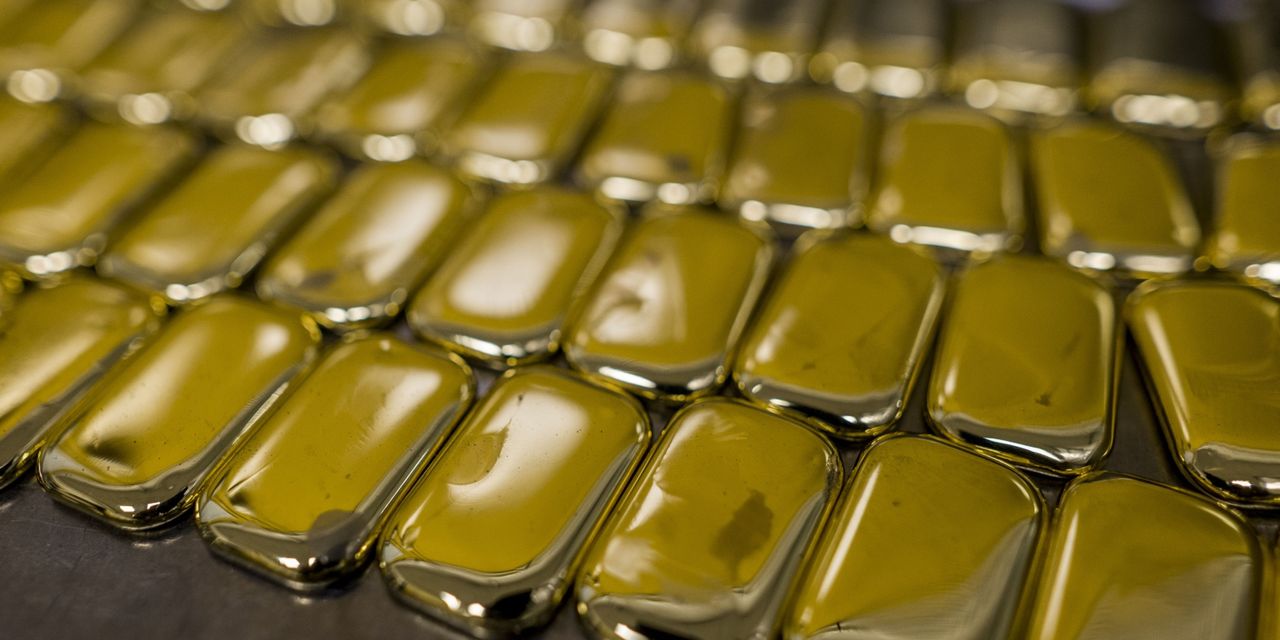September is famous on Wall Street for strong seasonal cross currents. Some of them may even enjoy strong enough statistical and theoretical support to justify betting on them.
Perhaps the best-known September-based truism is that it’s a terrible month for stocks. What fewer may be aware of is that it’s also considered the best month of the calendar for gold.
Consider gold’s performance since Dec. 31, 1974, which is when it became legal for U.S. citizens to own it. Since then, gold bullion in U.S. dollar terms has produced an average gain of 1.8% in September, more than four times its average return of 0.4% in the other 11 months of the calendar. Just the reverse was the case for stocks: The
Dow Jones Industrial Average
lost an average of 1.0% in September beginning in 1975, versus an average gain of 1.0% in all other months.
The Dow has been around for a lot longer than the period since 1975, of course, and September has been the worst average performer over that longer history as well. Since the benchmark was created in 1896, September has produced an average loss of 1.1%, versus a 0.8% average gain across all other months. September’s dismal relative performance has been remarkably consistent, furthermore: Its return rank relative to the other 11 months is below average in every decade since 1900 but one.
Given this, it perhaps is little surprise that the average Dow return difference between September and all other months is significant at the 95% confidence level that statisticians often use when assessing whether a pattern is likely to be genuine.
Gold’s September record is less consistent. Up until a decade or so ago, September was the best month of the calendar for gold. Since then, it has been the worst, and this recent experience weakens—though doesn’t eliminate—the statistical case in favor of gold being a stellar September performer. Over the entire period since 1975, that statistical case is only marginally significant—at just the 90% confidence level, rather than the traditional 95% level.
Why stocks may do poorly in September.
Regardless of the strength of the statistical case in favor of a seasonal pattern, you shouldn’t bet on its persistence unless a plausible theoretical case can be made for why it should exist in the first place.
After years of my insisting that such a case doesn’t exist for stocks, a recent study in the Journal of Financial and Quantitative Analysis changed my mind. Entitled “Seasonal Asset Allocation: Evidence From Mutual Fund Flows,” the study was conducted by Mark Kamstra of Canada’s York University; Lisa Kramer of the University of Toronto; the late Maurice Levi of the University of British Columbia; and Russ Wermers of the University of Maryland. They find strong evidence that seasonal affective disorder (SAD) is the source of September’s poor stock market performance.
SAD, of course, is a depressive mood disorder related to the change of seasons. Few of us associate it with September, since more people suffer from SAD during the winter months. But what affects the stock market isn’t how many suffer from SAD but changes in that number. And the biggest month-to-month change in those suffering from SAD, according to psychological data, occurs between August and September.
The authors of this recent study connected these monthly SAD changes with the stock market by measuring flows of cash into and out of equity mutual funds. After controlling for other possible factors that could potentially also explain those flows, the researchers found a high correlation between changes in the incidence of SAD and equity mutual fund flows. The month experiencing the biggest net outflow is September.
Both a strong statistical and a strong theoretical case can therefore be made for why September may be a below-average month for stocks. While this doesn’t guarantee that the stock market will lose ground in this coming September, it does increase the probability that it will decline.
Why gold may do better in September.
There are reasons why gold should do well in September, but they’re weaker than the case for why stocks should do poorly. The only academic study of gold’s tendency to perform well in September, at least that I am aware of, was conducted over a decade ago by Dirk Baur, a finance professor at the University of Western Australia. In his 2012 study, entitled “The Seasonality of Gold—the Autumn Effect,” he hypothesized that this tendency could be caused by any of several distinct factors, including the SAD factor that can explain stocks’ poor September odds. Another possible factor, he wrote, is jewelry demand in India prior to Denali, which is that country’s annual “festival of lights” that occurs at some point during October or November. (This year Denali will be celebrated on Nov. 12.)
Baur emphasized in his study that his these hypotheses are just speculation, however. In a recent email, he further speculated that September in recent years may have stopped being a good month for gold because enough investors became aware of the seasonal pattern and tried to profit from it—thereby killing the goose laying the golden egg. By jumping the gun and buying gold in August rather than September, he wrote, they transferred September’s gains into August. Since 2010, August has been the best month of the calendar for gold.
The bottom line: A bet that gold will do well during September is significantly more tentative than the bet that stocks will do poorly.
Mark Hulbert is a regular contributor to Barron’s. His Hulbert Ratings tracks investment newsletters that pay a flat fee to be audited. He can be reached at [email protected].
Write to [email protected]
Read the full article here





